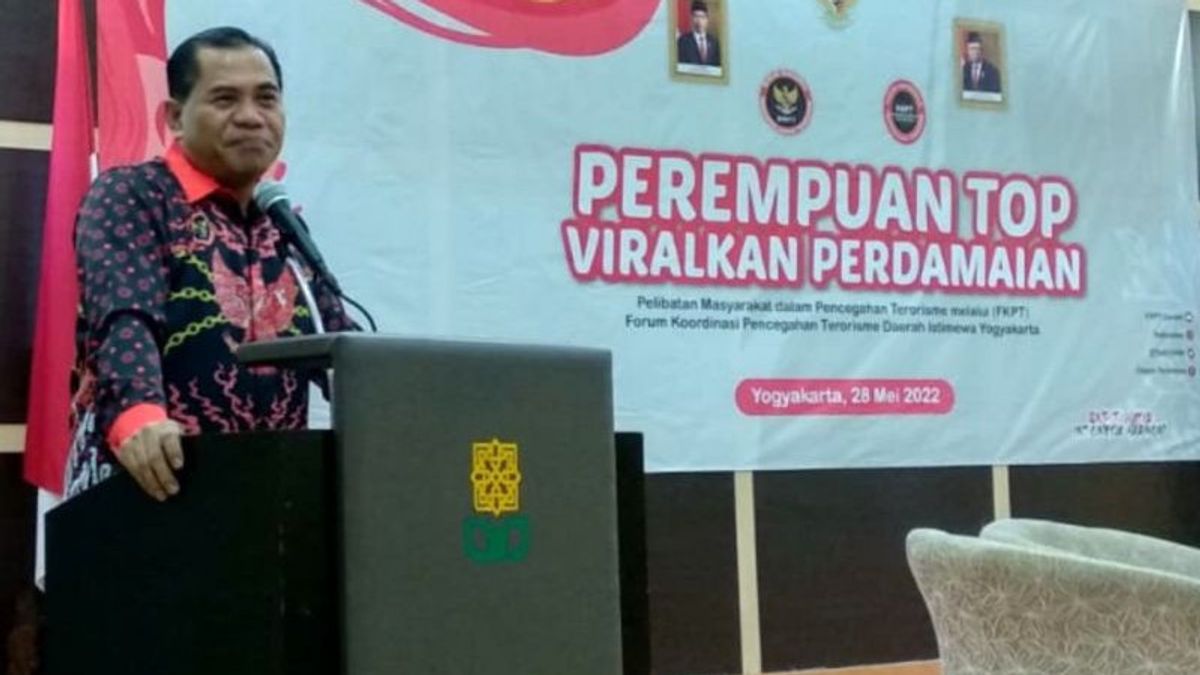YOGYAKARTA - The National Counterterrorism Agency (BNPT) assessed that the presence of preachers with moderate propaganda materials in cyberspace during the pandemic was effective in suppressing the influence of radicalism in the country.
"Those (lecturers) who are mostly moderate are sufficient to balance religious content in cyberspace (which is intolerant and radical)," said BNPT Prevention Director Brigadier General R Ahmad Nurwakhid as quoted by Antara, Saturday, May 28.
Nurwakhid said religious content that is spread in cyberspace and is commonly accessed by the public in Indonesia, 67.7 percent of which is religious content with intolerant and radical nuances.
After entering the pandemic, which was followed by the implementation of health protocols (prokes), he continued, da'wah content from moderate and tolerant preachers began to appear in cyberspace, thereby suppressing the influence of radical content.
"Once there is a pandemic, the kiai, preachers, and priests who have been silent so far, have not gone viral, but because there is a process, they inevitably use gadgets (for da'wah)," he said.
Thanks to the willingness of moderate preachers to be present in cyberspace, Nurwakhid said the index of potential for radicalism in Indonesia based on the results of the 2020 survey fell to 12.2 percent compared to 2017 which reached 55.2 percent.
Nurwakhid explained that the index of potential for radicalism which reached 12.2 percent was dominated by the millennial generation.
In addition, the terrorism risk index (IRT) in 2021 has also dropped to 52.22 percent or exceeded the target set in the 2020-2024 National Medium-Term Development Plan (RPJMN) of 54.36 percent.
According to Nurwakhid, the emergence of radicalism always begins with an exclusive and intolerant attitude towards diversity.
"Radical or extreme characteristics usually disbelieve those who are different, not only different religions, but different groups, different understandings, even fellow religions are disbelievers," he said.
Radicalism, he said, is actually a phase towards terrorism because radicalism is an understanding that animates all acts of terrorism.
Therefore, Nurwakhid invites all parties, especially women as pillars of the nation's teachers to be able to fortify families, the environment and society from radicalism.
"Fortify from foreign ideas that can damage the unity and integrity of the nation. Besides, it strengthens the love for the homeland and the nation's ideology, namely Pancasila," he said.
The English, Chinese, Japanese, Arabic, and French versions are automatically generated by the AI. So there may still be inaccuracies in translating, please always see Indonesian as our main language. (system supported by DigitalSiber.id)













